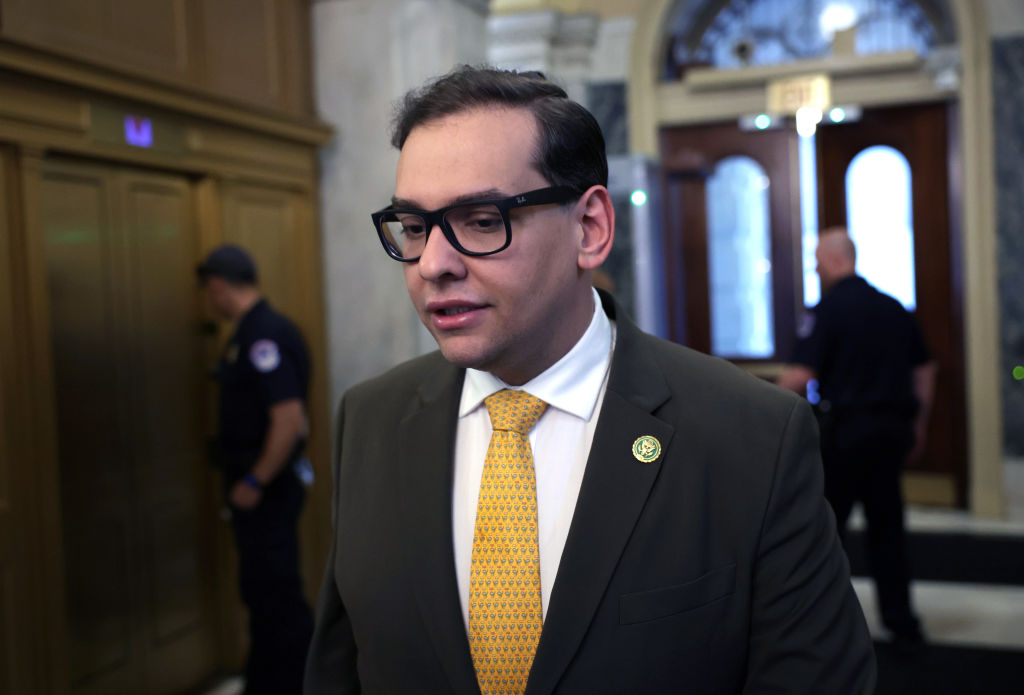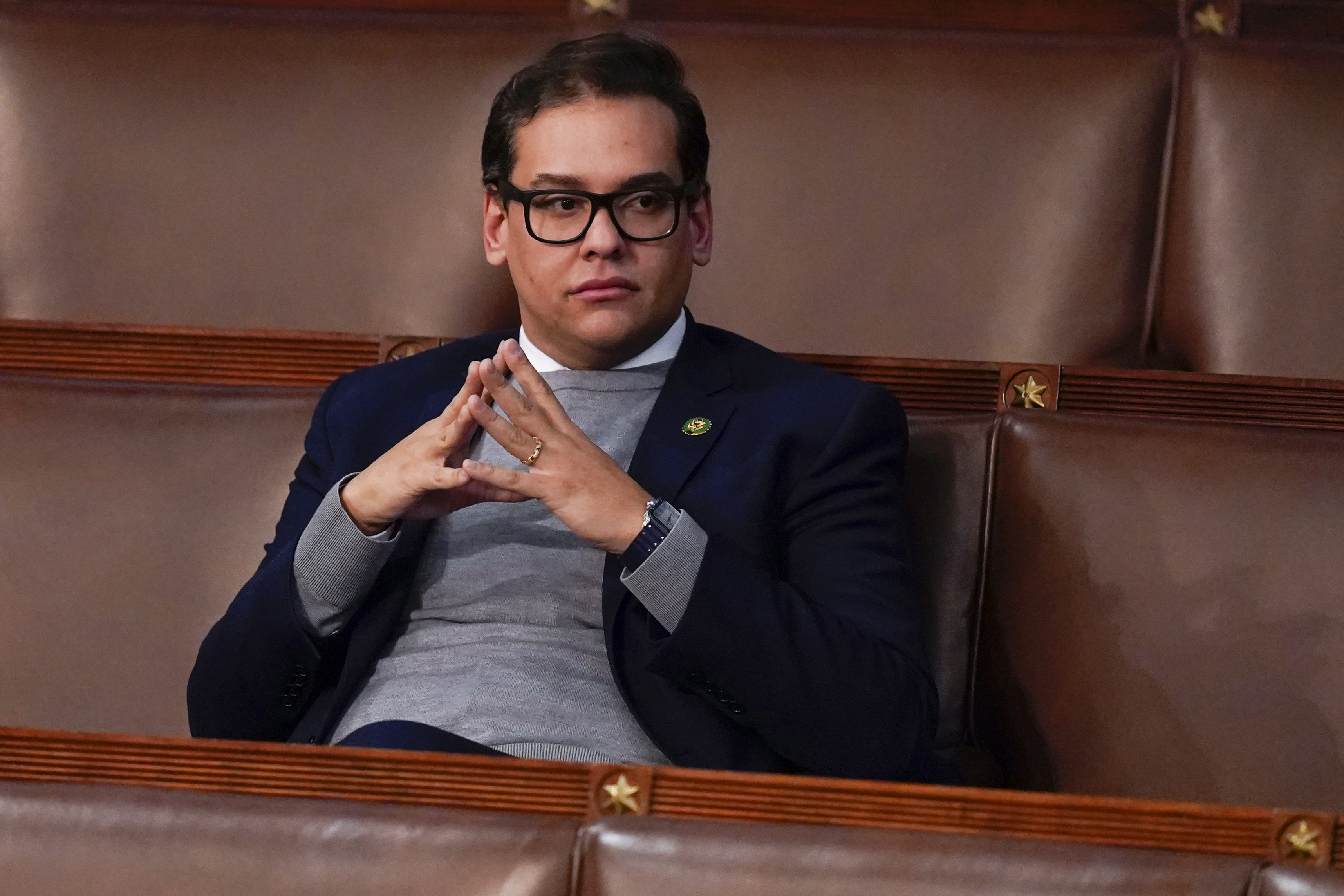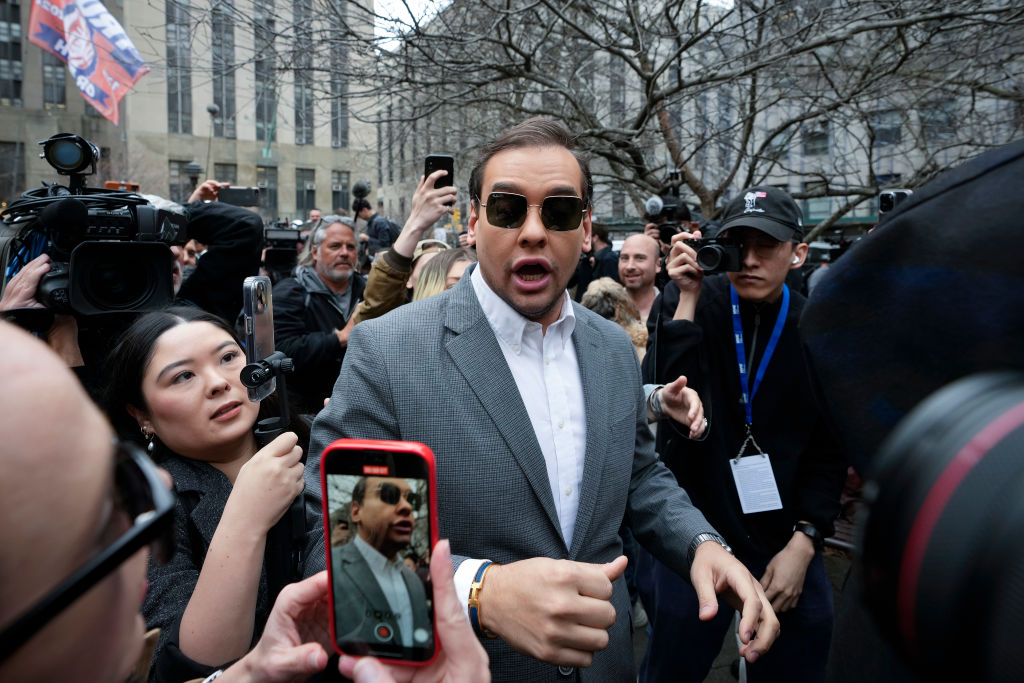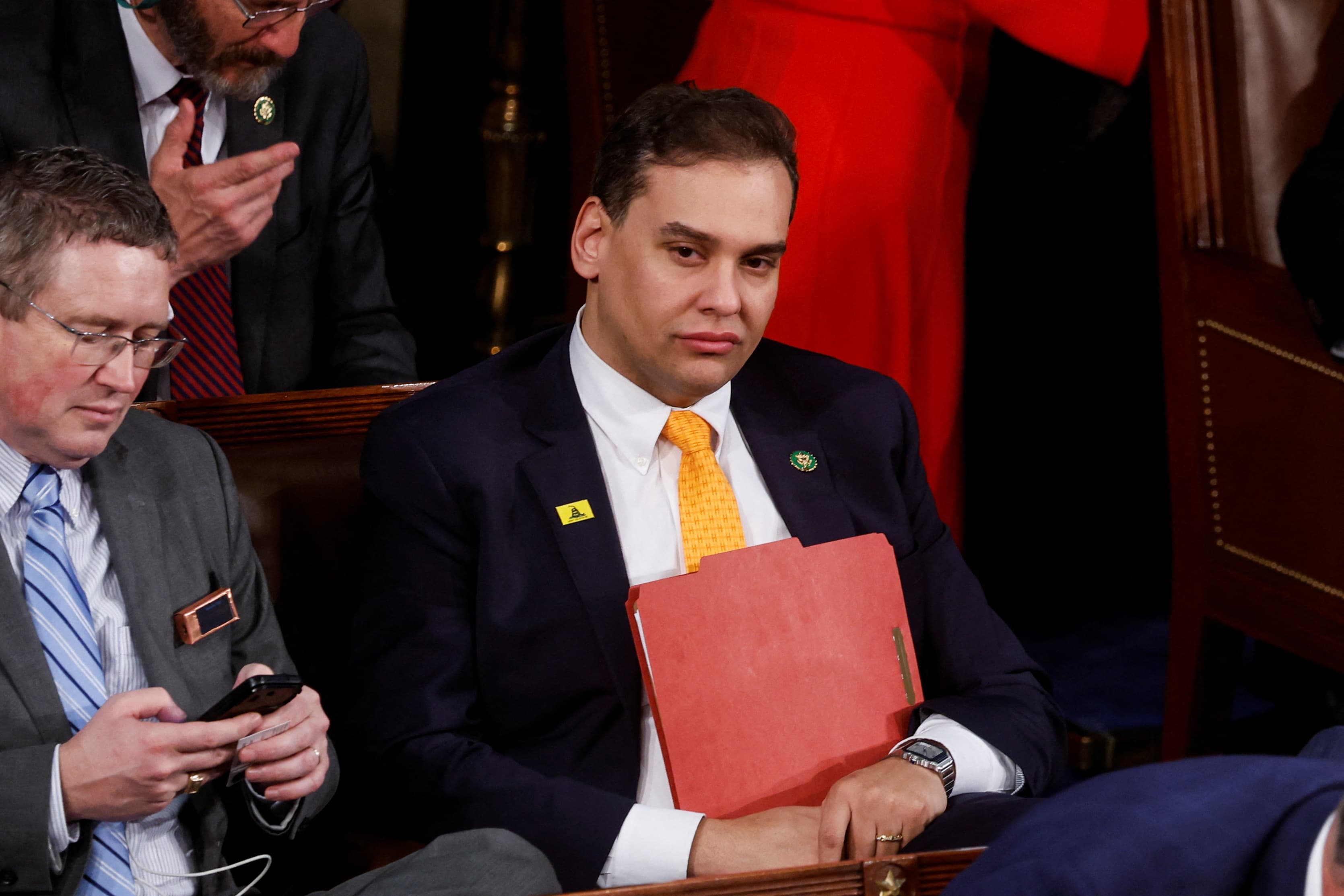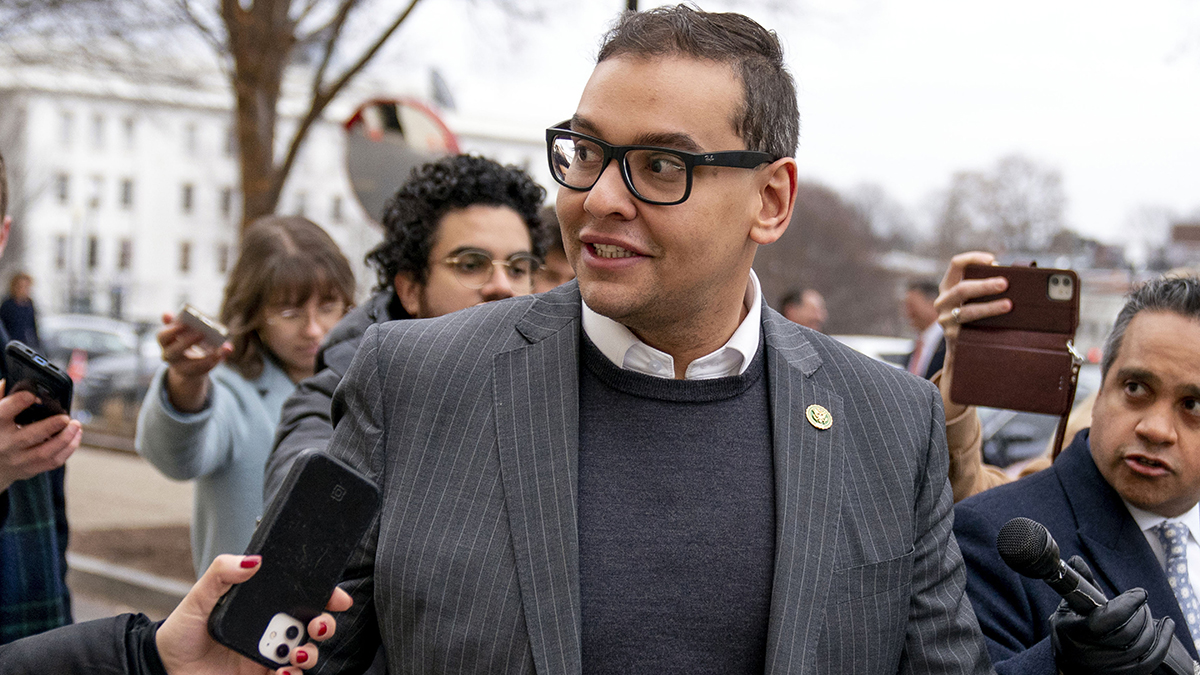A Democrat in the House of Representatives has introduced a resolution to expel troubled Republican Rep. George Santos from Congress.
The motion, put forward by Rep. Robert Garcia (D-CA), is privileged — meaning the House must bring it up in the next two days. It would need a two-thirds majority vote to pass, which is not expected to happen.
"George Santos is a fraud and a liar, and he needs to be expelled by the House. News that federal prosecutors are filing 13 criminal charges against George Santos should have been the final straw for Kevin McCarthy, but he refuses to act," Garcia said in a press release. "Republicans now have a chance to demonstrate to Americans that an admitted criminal should not serve in the House of Representative."
Get Tri-state area news delivered to your inbox.> Sign up for NBC New York's News Headlines newsletter.
Garcia was joined by Rep. Eric Sorensen (D-IL) and Rep. Becca Balint (D-VT) on the House floor in calling for the expulsion vote. Both freshmen representatives were the original co-sponsors of the first resolution to get Santos ousted from the chamber. More than three dozen Democratic lawmakers have signed onto Garcia's bill that would expel Santos from the House.
Garcia has urged the several Republicans from New York who have criticized Santos to sign on to the expulsion legislation.
The move comes a week after the freshman congressman from Long Island was accused on May 10 by federal prosecutors of embezzling money from his campaign, falsely receiving unemployment funds and lying to Congress about his finances. He could face up to 20 years in prison if convicted.
Santos pleaded not guilty to 13 charges. After entering the plea, Santos remained adamant that he had no plans to resign — and in fact would continue seeking reelection.
Protecting a narrow, four-vote majority, Republican leaders in the House have made it clear that they intend to let the legal process play out with the New York congressman before they take steps to force his resignation or expel him.
Republican House Speaker Kevin McCarthy has said he will not ask for Santos to step down. Republican leaders, who for months have faced mounting questions about Santos after most of his campaign biography was exposed as a lie, were unmoved and brushed aside calls — including from some colleagues — that they take immediate action to push Santos out of Congress.
“In America, there’s a presumption of innocence. But they’re serious charges. He’s going to have to go through the legal process,” said House Majority Leader Steve Scalise of Louisiana.
Scalise was seconded by Republican Rep. Elise Stefanik of New York, the No. 3 House Republican, who sidestepped the question of whether Santos should resign.
“As I’ve said from the very beginning on questions on this subject, this legal process is going to play itself out,” she said.
Republicans deny that Santos has been a distraction and say they are focused on other issues.
“This place is bigger than any one member,” said Rep. Kevin Hern, R-Okla., the chairman of the powerful Republican Study Committee.
The position Republican leaders have staked out generally follows the precedent that Congress has set in similar criminal cases over the years. The House has expelled just two members in recent decades, and both votes occurred after the lawmaker had been convicted on federal charges. But many say the narrow majority that Republicans won in the House is surely another factor in the GOP leadership's thinking.
“There are a few members of the New York delegation and a few others calling for his immediate expulsion on the Republican side, which could tilt the leadership's hand. But given where we’re at with the debt limit and a four-vote majority, they don’t want to lose any of those votes right now,” said Casey Burgat, an assistant professor who leads the legislative affairs program at George Washington University.
Santos voted last month for the House GOP bill that ties a debt limit extension to an estimated $4.8 trillion in deficit reduction over 10 years. In a dramatic flourish, Santos was the last Republican to cast a vote in favor of that bill, helping it win passage by a paper-thin margin — 217-215.
While GOP leaders say the legal system needs to run its course, a few Republicans have seen enough.
“The people of New York’s 3rd district deserve a voice in congress,” tweeted Rep. Tony Gonzales, R-Texas. "George Santos should be immediately expelled from Congress and a special election initiated at the soonest possible date."
The House and the Senate have the power to punish members of their chamber for misconduct, including through expulsion. To date, according to the Congressional Research Service, 20 members have been expelled, but the large majority of them occurred at the outset of the Civil War. Half of the 20 expulsions were the result of a single vote in the Senate involving senators who represented states that had seceded from the Union, but had not formally resigned.
The two most recent expulsions followed convictions on public corruption charges were:
—Rep. Michael J. “Ozzie” Myers, D-Penn., was convicted of bribery and conspiracy for taking money from FBI agents who posed as Arab sheiks. He was expelled in 1980 following his conviction and served more than a year in prison.
—Rep. James Traficant, D-Ohio, was expelled in 2002, three months after he was found guilty of 10 federal charges, including racketeering, bribery and fraud for taking bribes and kickbacks from businessmen and his own staff.
Some lawmakers have also resigned upon being convicted of a crime, pre-empting an expulsion vote.
Last year, Rep. Jeff Fortenberry, R-Neb., resigned from office after a California jury convicted him of lying to federal authorities about an illegal campaign donation from a foreign national.
Two years earlier, Rep. Duncan Hunter, R-Calif., submitted his resignation about a month after pleading guilty to a charge of conspiring with his wife to steal about $250,000 in campaign funds to pay for a lavish lifestyle, from vacations to outings with friends and private school tuition. Then-President Donald Trump pardoned Hunter shortly before he left office.
Trump also pardoned former Rep. Chris Collins, R-N.Y., who resigned in 2019 ahead of admitting to helping his son and others dodge $800,000 in stock market losses when he learned that a drug trial by a small pharmaceutical company had failed.

